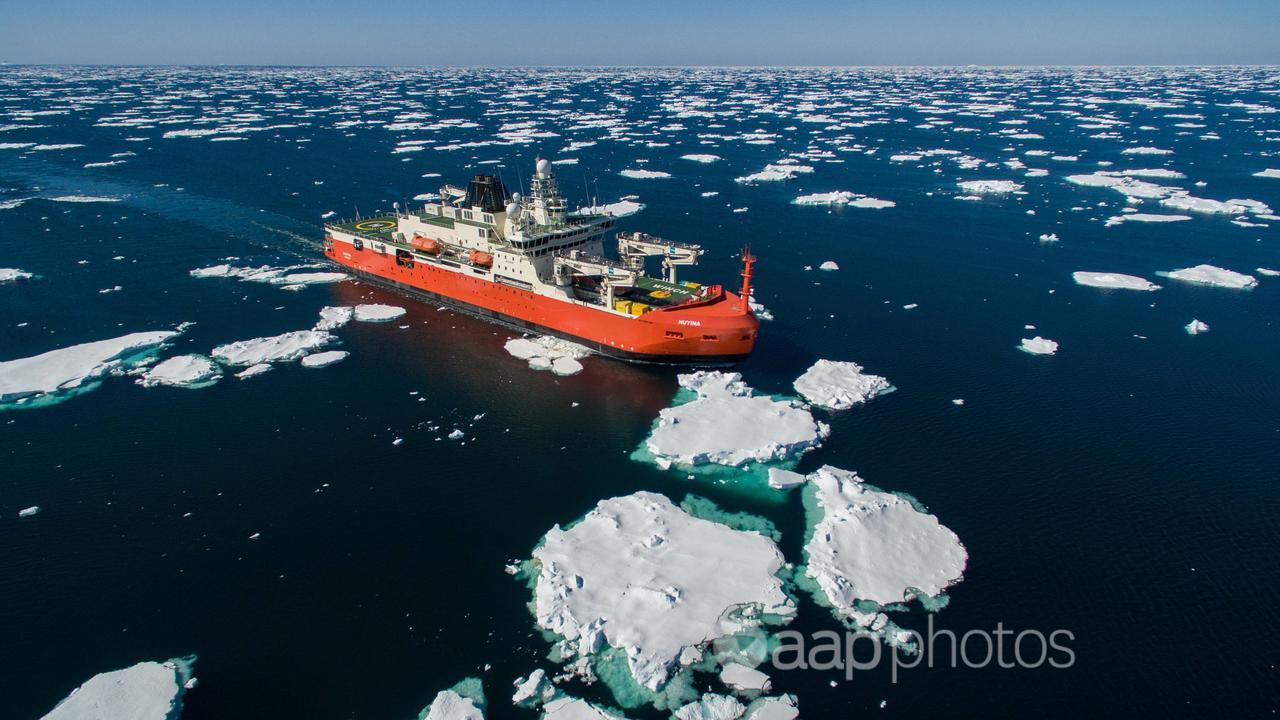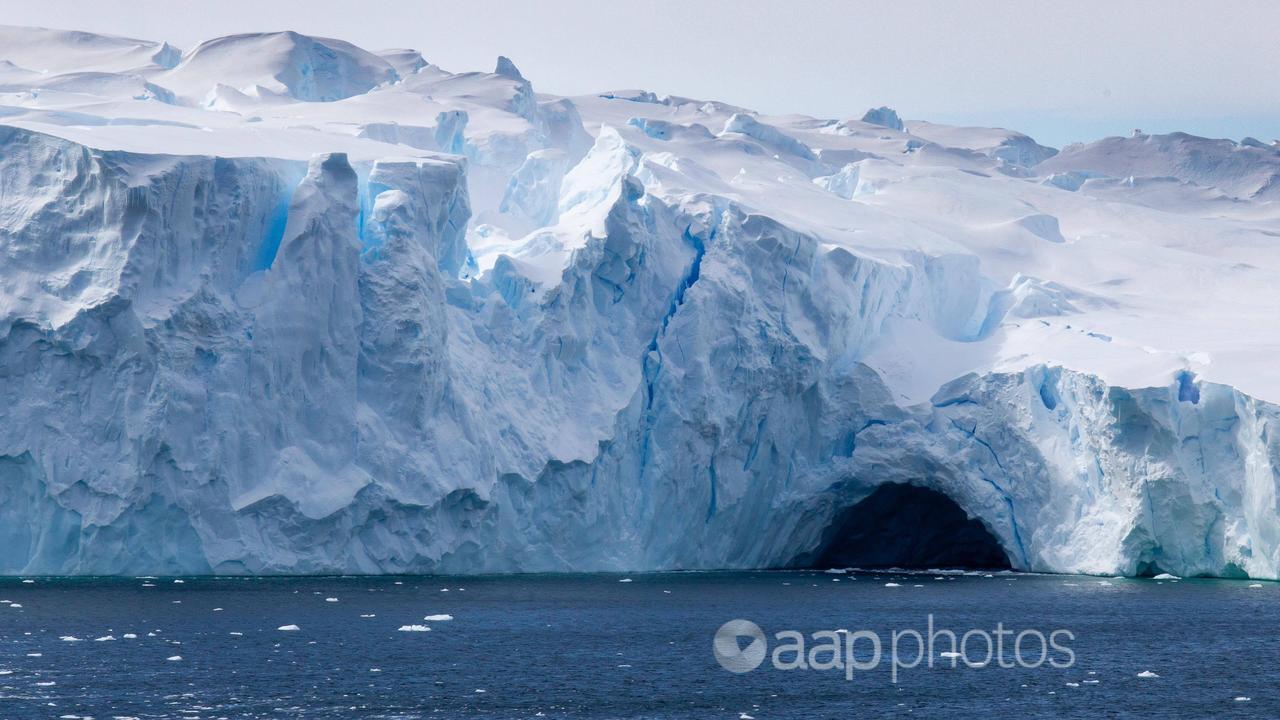An online group claims that Antarctica’s glaciers are melting because of undersea volcanoes rather than human-induced climate change.
The claim is false. Experts say glacial melting is unrelated to volcanic activity and is being caused by rising ocean temperatures generated by global warming.
The claim is made in a video posted on Facebook by a group called Creative Society (archived here).
The speaker claims: “The glaciers of Antarctica are melting from the bottom up due to the internal heat because hot magma rises up towards them. Under the glaciers there is now warm water which is heated by the subglacial volcanoes.”
The speaker says melting being the result of human activity “turns out to be an absolute lie” and the “anthropogenic factor has nothing to do with it”.

NASA addressed speculation about the role of volcanic activity in the loss of ice in Greenland and Antarctica” in a 2020 report.
It concluded: “In short, the answer is a definitive ‘no’.”
The report cites a 2017 NASA-led study by geophysicists Erik Ivins and Helene Seroussi of NASA’s Jet Propulsion Laboratory, which found that volcanic activity, while present in Antarctica, isn’t responsible for the recent observed loss of ice.
In its 2020 report, NASA said: “While Antarctica’s known volcanism does cause melting, Ivins and Seroussi agree there’s no connection between the loss of ice mass observed in Antarctica in recent decades and volcanic activity.
“The Antarctic ice sheet is at least 30 million years old, and volcanism there has been going on for millions of years. It’s having no new effect on the current melting of the ice sheet.”
The study noted geothermal heat is not a new or increasing threat to the West Antarctic ice sheet “but rather has been going on over geologic timescales, and therefore represents a background contribution to the melting of the ice sheet”.
In August 2023, 300 scientists from the first Southern Ocean Observing System international conference released a statement noting “critical changes in the Southern Ocean” including record low levels of sea ice and record high temperatures.
A UK review on extreme events in Antarctica from the same month concluded that while it was an open question as to how much of some events could be attributed to burning fossil fuels, in the vast majority of cases it was virtually certain that continued greenhouse gas emissions would lead to increases in the size and frequency of events.
Scientists at an August, 2023 Antarctic biology conference published an open letter noting that “Antarctica is currently experiencing dramatic changes at unprecedented rates, marked by repeated extreme events” including summer heatwaves, a 2022 autumn heatwave and record low sea ice extent in summer and winter”.
AAP FactCheck asked researchers whether melting glacial ice could be related to volcanic activity, as claimed in the post.
Professor Matt King, director of the Australian Centre for Excellence in Antarctic Science at the University of Tasmania, said speculation had occurred in the past, such as here.
“There are volcanoes under parts of the Antarctic ice sheet, especially in West Antarctica,” he said.

“As a result, scientists have long thought about their potential role in how the ice sheet works.
Prof King said there was no evidence of present-day active eruption beneath the ice sheet as the known volcanoes “appear either extinct or dormant”.
Dr Colin Summerhayes of the Scott Polar Research Institute at Cambridge University, said Antarctic ice loss was not in the volcanic district but in large glaciers nearby — Pine Island and Thwaites.
“The speeding up of the main ice streams (Pine Island and Thwaites) since the later part of the 20th century is not attributable to any unexpected increase in volcanic activity,” he said.
“It seems to relate mostly to the fact that about 90 per cent of the heat of global warming is trapped in the ocean, most of it in the upper 500m.”
“Under the influence of coastal currents this subsurface warm water is being brought up from the depths onto the continental shelf and making its way into the deep channels beneath the glaciers, thus melting them from beneath.”
The Verdict
The claim that Antarctic glaciers are melting because of hot magma from undersea volcanoes and not because of human activity is false.
Scientists say there is no evidence that recent glacial melting in Antarctica is caused by volcanoes. Research indicates glacial melting is not occurring where known volcanoes are and that there is no increased volcanic activity that corresponds to increased melting.
False — The claim is inaccurate
AAP FactCheck is an accredited member of the International Fact-Checking Network. To keep up with our latest fact checks, follow us on Facebook, Twitter and Instagram.
All information, text and images included on the AAP Websites is for personal use only and may not be re-written, copied, re-sold or re-distributed, framed, linked, shared onto social media or otherwise used whether for compensation of any kind or not, unless you have the prior written permission of AAP. For more information, please refer to our standard terms and conditions.


















